Harry Clark opens up about his controversial victory on BBC reality show The Traitors, why his faith has “saved him” and his new book Staying Faithful
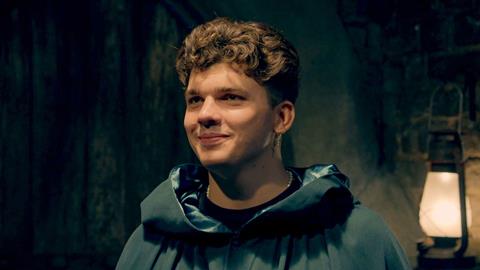
Watercooler moments are now few and far between – those times when something like a TV show is the talk of the office and most people watch it when it’s first aired, rather than on catch-up.
A show that has given us those moments is The Traitors, the BBC reality show that tasks a group of Faithfuls to root out the Traitors among them. At its heart is the weighty issue of trust, adding a moral complexity to the show that makes some Christians uneasy. These are real people, seemingly forming real relationships before stabbing each other in the back. Is it really just a game?
One person expertly placed to discuss this is Harry Clark, winner of the second series and the only person to have ever won the game as a Traitor. He’s since become even more prominent on our screens, featuring in Celebrity SAS and Pilgrimage, with the latter giving Harry a platform to talk more about his faith – a faith that, as he shares in his new book Staying Faithful (SPCK), has grown stronger since winning The Traitors.
We chatted with Harry about his story – including his Christian upbringing, the role Instagram played in getting on The Traitors, the powerful answer to prayer he experienced, what inspired him to write the book, and whether or not The Traitors is just a game.
What is life like now compared to before you did The Traitors?
Absolutely insane! The best way to explain it is I felt I was playing a lottery that I never knew I was playing.
If you asked me five years ago to write where I think I would be, I wouldn’t have got anywhere near close to what I’ve done.
You won £95,000. What have you done with the money?
I paid off my mum and dad’s personal debts. The rest has been invested.
Tell me about life growing up, and where Christian faith first emerged.
I was born into a Catholic family, into Christianity, where my mum and dad were religious. They were baptised, my grandparents too, and me and my siblings. And I went on to be confirmed, to carry on my faith. It’s always been prominent in my life.
Tell me more about your confirmation, because that was a that was a special moment, wasn’t it?
It’s where I found my own faith. I’d only ever been to church because my mum made me go to church. I was going through the motions. But confirmation was really the moment where I wanted faith to be a big part of my life.
You were in the army, but you left to go on The Traitors. Why was that?
I’d met Anna, my girlfriend, and wanted to start the next chapter of my life. I didn’t want to be away from home anymore. I got a message on Instagram from the programme’s casting team. They had seen me in Egypt on Anna’s TikToks (she’s a singer and active on social media). They said, “We think you’d be good on The Traitors.” I hadn’t seen series one and thought the message was a scam!
I left it a couple days and, awake one night, I thought I needed to do something different in my life. I rang the number they’d left and they explained the game. I still didn’t think anything of it, then at the end, she says, “You can win prize money… £120,000” I said, “Why didn’t you start with that?! I’m playing and I’m going to win it.” I then did the same application process as everyone else.
You never watched the first series? Even once you knew your application had been successful and you were going on the show?
I never watched The Traitors and I think it did me the world of good, because I didn’t have any presumptions or plans! That’s where people in my series went wrong, I think, because they tried planning the whole thing – and when something happened that they didn’t plan for, they were stuck.
How do you view The Traitors? Is it just a game?
Yeah, of course!
But you were forming friendships with other contestants. That was real, wasn’t it?
Yeah, but I was very good at compartmentalising these people. We were there four weeks, so it was easy for me to look at them and think they don’t really know who I am. Whereas I’ve got people at home who’ve loved me for 22 years – they’re the reason I’m here. I’m not here to share the money with people I’ve known for four weeks.
You were good at being friendly with people, you wouldn’t let it effect you emotionally - which made you a good traitor.
I was in the army from aged 16 and I learned how to control my emotions. You learn how to give enough emotion to a certain situation. For me, I knew when to put an act on – when to put stuff on or put it off a bit. In The Traitors, you need that perfect balance.
I was also the youngest, so I knew playing the gullible card was right, because they wouldn’t expect a kid my age to pull the strings, and that’s what gave me the energy to keep going on.
You had to keep your victory a secret until the show was finally broadcast months later. What was that like?
It was really weird. But I was excited to keep it a secret because I liked the surprise on my family’s faces. My immediate family knew, but I have about 30 cousins, my aunties and uncles – they didn’t know anything.
Watching it was like reliving the experience. Of course, our reality was different, because we’re filmed throughout a day and you only see a one-hour edit. I remember watching the final and I was on the edge of my seat thinking, How does this guy get out of this?!
You won the show in a way that could be seen as controversial. Were you worried about how the public might respond to you when they saw it?
When I won, Claudia [Winkleman] was amazing in making me feel great about it, saying I’d outsmarted everyone and I should be happy about that. That made me feel better.
But then I thought the whole UK might hate me, because I’ve ruined 21 other people who were amazing and had their own stories. But the public took it so well. I think they could see that I was just being myself.
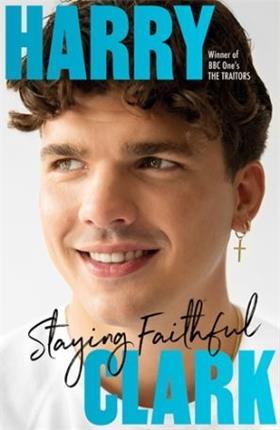
What is life like after The Traitors?
I never wanted to be “Harry from The Traitors.” I just wanted to be normal Harry from Slough who got his money and then went to work. But there’s a story I talk about in my book. I got in a taxi and the driver said The Traitors was the one thing that brought three generations of his family together on the sofa. He said, “You need to keep going, because people resonate with you.” Afterwards, I thought, Why don’t we give this a go and see what happens?
So, what you want to do now?
There’s hopefully a few documentaries we’re working on. I want to set myself some challenges. I’ve got the London Marathon next year and I want to do an Iron Man. I want to raise money. I just want to help people and show that it doesn’t matter who you are or what you look like, or where you come from or what you believe in, you can be whatever you want to be, and you can go on and do whatever you want to do.
Life is so precious. I’m going to make the most of my time and live in the present.
You’ve also been on Pilgrimage, which sees celebrities walking a route of great spiritual significance. How did that come about?
I did Celebrity SAS, but I was not in the right place, physically or mentally. It was quickly after The Traitors and I was so lost, because I didn’t know what life now meant. I had no routine to my life. I did Celebrity SAS, and it was probably the worst thing to ever happen to me, but it was also a blessing in disguise, because it helped me realise that I needed to sort myself out.
I was again battling demons, like when I was in the army and my faith saved me. I thought everyone’s going to hate me [after Celebrity SAS]. No one’s going to want to watch me on TV again. Because of how useless I was, I’ve embarrassed myself, my army, the family. I didn’t really know how to get back from that.
Then my mum says, “Just pray. That’s the one thing you know how to do.” I started giving thanks for everything, and I prayed for a sign that I’m in the right place. Then my manager rang me and said, “Are you religious?” I said, “Yeah. Why?” I’d been asked to go on Pilgrimage and I shook my head in disbelief – it couldn’t have been a bigger sign!
You write in the book that around the time of The Traitors you weren’t massively living out your faith. What happened?
Faith is like a wave – some days it might be weaker, other days it might be stronger.
After The Traitors, I was so busy and faith took a backseat. It was once I’d done Celebrity SAS that I returned to my faith. It seemed to save me again – my relationships, my career, me as a person. Now it’s stronger than ever.
Tell me more about Pilgrimage. How was that experience?
Just amazing. Again, I’m the youngest ever person to do it, and I felt like a sponge. These people I’m with have been in the industry some 20 years. The life lessons I learned from them, and the calmness they gave me, were amazing.
They all followed different religions and, going into the show, I didn’t want to be that person who couldn’t have a debate or a discussion because I didn’t know anything about what they believed in. So before I went on, I took time to dive into every other religion.
It helped me understand what my faith meant to me. I didn’t want to just say, “I’m Roman Catholic, or I’m Christian, because my mum and dad are.” What does it actually mean to me? That was probably the best thing about the Pilgrimage for me – I really found out what faith means to me. Am I just a Christian because I was born into a Christian family? Or should I be Muslim or Jewish? Does that resonate with me more? And what I’d found out was that, no, what my faith means to me is the closest I feel to God, so that’s going to carry on being my faith.
It was the most amazing experience – not only learning life lessons and about religions, but also strengthening my faith and feeling closer to my God, and knowing that I was in the right place personally.
You’ve said a few times in this interview that your faith “saved you”. What do you mean by that?
When I hit rock bottom, struggling with mental health, like suicide, God was the one thing that saved me.
I was the rock for my family. I carried all the burdens and I felt like I had no release, because I wanted to be as strong as possible for my family. It was my God whom I could put my burdens on, and that gave me the calmness that I’d be alright. It brought me back from some dark times.
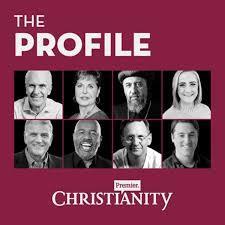
My main focus for the book is to just help one person – because if that one person can help another person, and that person helps another one, that’s just a beautiful chain effect I’ve created.
This article was produced with editorial support from Tim Bechervaise.
To hear the full interview with Harry Clark listen to The Profile podcast













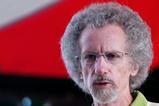
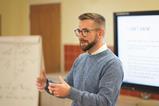






















No comments yet